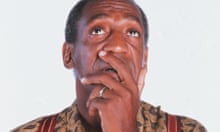Songs about gynaecology are few and far between. Tori Amos wrote Spark and other songs following her experience of miscarriage. The lyrics of PJ Harvey’s When Under Ether are suggestive of abortion (“Something’s inside me/ Unborn and unblessed”) although Harvey denied a direct link. Kate Bush imagined a father’s perspective of birth in This Woman’s Work. Great songs; relatively slim pickings. Pregnancy and childbirth are transformative experiences and also not unusual. Why then does so little music explore it?
Motivated by this absence, Norwegian composer Rebekka Karijord wrote an experimental concept album of narrative pop, Mother Tongue. Released earlier this year, it chronicles her first pregnancy and the traumatic premature arrival of her daughter. “There is something in popular music for women with this topic that I felt has been taboo,” she says on the phone from Stockholm where she lives. “With this subject, as any subject, it’s super-important that women and artists in general are allowed to be honest [about] where they are in their life.”
The album is chronological, beginning with the fertilised egg (Morula) and the psychological experience of pregnancy and ending with early motherhood and a reflection on womanhood and feminism (Mausoleum). Your Name is about the dramatic birth when Karijord was seven months pregnant (“A riot of blood and steel/ Bending me open, violently”). The middle of the record documents the two months the family lived in the hospital, including the melodies she sang to calm her daughter.
Incredibly, it may be the first album of its kind. “I wondered if it’s some old, preconceived notions that must come from a chauvinistic, journalistic perspective that women lose creativity when they become mothers; that they disappear as artists,” she says. “There’s been a lot of rules on us, [on] how to behave; we haven’t been free.”
While pregnancy is depicted in lots of other art forms, Karijord says it’s still strangely forbidden in pop. Perhaps that’s because the focus in pop music is often on being young. But, she says, “I can’t write about being 22 and being in love because I’m done with that phase; I find where I am in life [now] interesting.”
Still, there are signs that musicians are starting to challenge societal discomfort around the female experience: Jenny Hval’s 2016 album Blood Bitch, for example, celebrates periods. Karijord says it makes sense that now is the time. “Because there is so much fake news, fear-driven propaganda in media and politics,” she says, “we’re going to see a lot of genuine and personal art coming in this age.”
Mother Tongue by Rebekka Karijford is out now









Comments (…)
Sign in or create your Guardian account to join the discussion